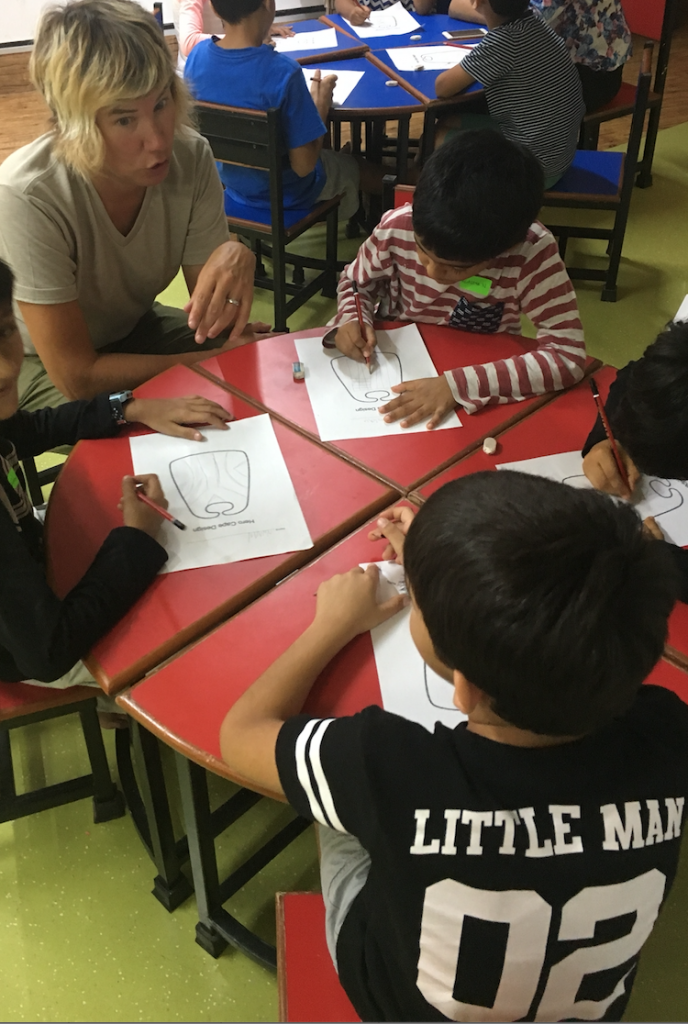
SEL Ideas for Home
[et_pb_section fb_built=”1″ admin_label=”section” _builder_version=”3.22″][et_pb_row admin_label=”row” _builder_version=”3.25″ background_size=”initial” background_position=”top_left” background_repeat=”repeat” make_fullwidth=”off” use_custom_width=”off” width_unit=”on”][et_pb_column type=”4_4″ _builder_version=”3.25″ custom_padding=”|||” custom_padding__hover=”|||”][et_pb_text _builder_version=”4.4.7″ background_size=”initial” background_position=”top_left” background_repeat=”repeat” hover_enabled=”0″ use_border_color=”off”]
The most important skills we teach in the early years aren’t academic. Skills such as self-regulation, sharing, kindness, and social justice are the life-long skills crucial to the overall success of our children, however you define success.
“We have to be vigilant of the mental and physical consequences of social isolation and be proactive about what we can do to mitigate the effects” says Darline (she/her), Executive Director at Hilltop. “It is particularly relevant for us, as adults working with or who have young kids at home, to develop and implement engaging learning experiences that help build resilience, social skills, and the ability to retain learning during this time.”
“It sort of goes back to what I said in Episode 2 of our podcast titled “Napcast” says Nick T. (he/him), educator at Hilltop. “I think acknowledging that children are just in process, as we all are, and that they are at the beginning of it. So, when it comes to supporting children’s social emotional learning, I suppose it’s about addressing human needs and trying hard to avoid societal constructs: avoiding telling boys not to cry, not just calling girls sweet names but also boys too, it’s really about counteracting certain constructs that pigeon hole the human experience, which I think allows a person’s authentic sense of self to flourish.
“While written as a response to COVID19, these collated list of activities that Hilltop educators have provided the families and communities we serve, are a great list of activities you can continually reference and do even after the pandemic is over, says Becky (she/her), educator at Hilltop.
Below are severals examples of our favorite social-emotional learning (SEL) related activities for you! As always, these are suggestions and “families shouldn’t feel pressured to do ‘exactly’ what some of these sites illustrate in terms of the activities described” says Becky. We invite you to share this blog with your community and with your colleagues.
Summary of ideas:
*Emotional ABCs: Geared towards slightly older preschoolers (4-5 year olds) and elementary aged kids, this website features both printable and online options for game-playing, drawing, and writing activities related to emotional intelligence.
Playing for Patience: This blog gives practical advice on ways to bolster social skills through gratification delay!
*Promoting Social and Emotional Health:This NAEYC blog provides adults the tools to teach young children social and emotional skills with intentionality. Inside are books, activities, and strategies adults can use in real time.
Monster Feelings: This activity allows children to identity and label feelings in oneself and others. This game provides them the opportunity to develop their emotional literacy.
Managing Emotions and Building Social Skills: To build self-awareness and help identify your child’s strengths, these 5 activities helps children build the skills associated with picking up social cues, decision making, understanding the perspective of others, and more!
We hope you enjoy these activities as much as our community did! These preschool literacy activities will keep little ones busy, ignite their curiosity, develop their problem-solving capacities, and teach them the basics that they’ll need to succeed throughout their life.
Looking for additional learning opportunities? Check Out Our Educator Discussion Series, including our next virtual learning workshop:
- No Walls, No Problem! Addressing the Barriers to Taking Learning Outside
Thursday, July 9th, 2020
5:00pm – 6:30pm PST (8:00pm – 9:30pm EST)
This workshop is geared towards educators, parents/relatives, interested professionals, policy-makers and more!
Register at: https://hilltopcc.com/outdoors
Missed it? This session is recorded. Contact us at institute@hilltopcc.org
What’s better than one male educators of color? Two! Check out Hilltop’s brand new podcast called “Napcast” which features Mike Browne (he/him) and Nick Terrones (he/him). This podcast is designed to help you learn on the go, hear another perspective, spark debate and honestly, remind you that you’re not alone. We live in a complex world, so allow us to challenge your orientation with words, thoughts, advice, and the perspective of two early childhood educators of color. Visit Napcast to tune in now and check out the rest of our professional development offerings including HilltopStudy Days and Study Tours to New Zealand.Feel free to email us at institute@hilltopcc.org.
[/et_pb_text][et_pb_comments _builder_version=”3.16″ header_font_size_tablet=”51″ header_line_height_tablet=”2″ use_border_color=”off” border_color=”#ffffff” border_style=”solid” button_text_size__hover_enabled=”off” button_text_size__hover=”null” button_one_text_size__hover_enabled=”off” button_one_text_size__hover=”null” button_two_text_size__hover_enabled=”off” button_two_text_size__hover=”null” button_text_color__hover_enabled=”off” button_text_color__hover=”null” button_one_text_color__hover_enabled=”off” button_one_text_color__hover=”null” button_two_text_color__hover_enabled=”off” button_two_text_color__hover=”null” button_border_width__hover_enabled=”off” button_border_width__hover=”null” button_one_border_width__hover_enabled=”off” button_one_border_width__hover=”null” button_two_border_width__hover_enabled=”off” button_two_border_width__hover=”null” button_border_color__hover_enabled=”off” button_border_color__hover=”null” button_one_border_color__hover_enabled=”off” button_one_border_color__hover=”null” button_two_border_color__hover_enabled=”off” button_two_border_color__hover=”null” button_border_radius__hover_enabled=”off” button_border_radius__hover=”null” button_one_border_radius__hover_enabled=”off” button_one_border_radius__hover=”null” button_two_border_radius__hover_enabled=”off” button_two_border_radius__hover=”null” button_letter_spacing__hover_enabled=”off” button_letter_spacing__hover=”null” button_one_letter_spacing__hover_enabled=”off” button_one_letter_spacing__hover=”null” button_two_letter_spacing__hover_enabled=”off” button_two_letter_spacing__hover=”null” button_bg_color__hover_enabled=”off” button_bg_color__hover=”null” button_one_bg_color__hover_enabled=”off” button_one_bg_color__hover=”null” button_two_bg_color__hover_enabled=”off” button_two_bg_color__hover=”null”][/et_pb_comments][et_pb_social_media_follow follow_button=”on” _builder_version=”3.0.87″ link_shape=”rounded_rectangle”][et_pb_social_media_follow_network social_network=”facebook” url=”https://www.facebook.com/Hilltop-Childrens-Center-Seattle-73100851072/” _builder_version=”3.0.74″ background_color=”#3b5998″ bg_color=”#3b5998″ link_shape=”rounded_rectangle” follow_button=”on” url_new_window=”on”] Facebook [/et_pb_social_media_follow_network][/et_pb_social_media_follow][/et_pb_column][/et_pb_row][/et_pb_section]